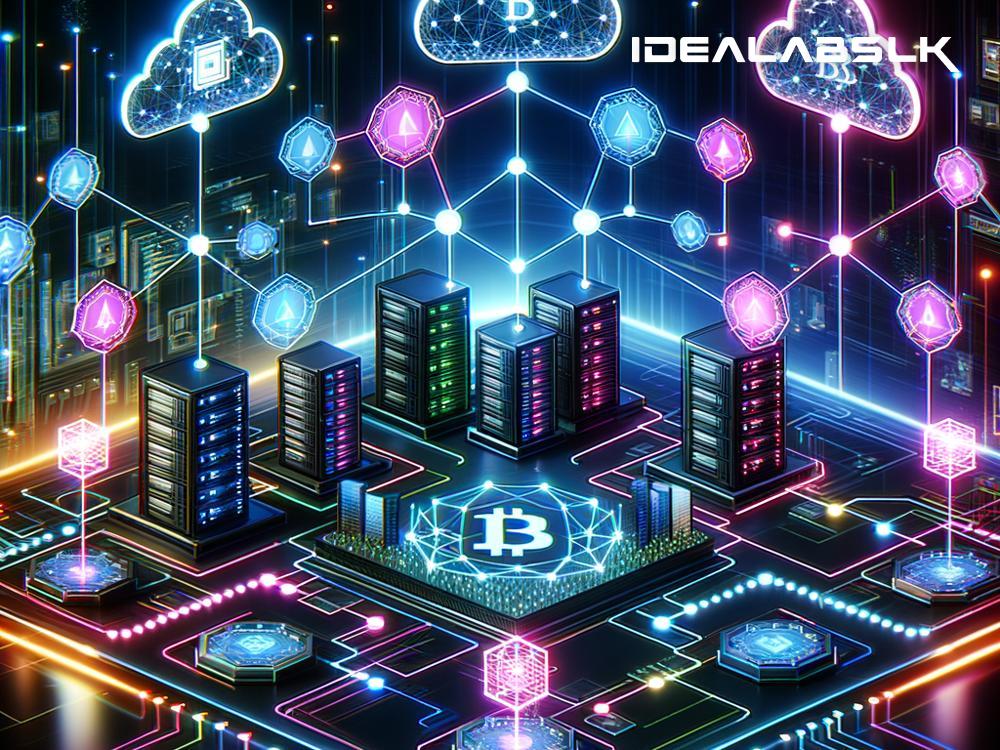The Future of Blockchain in Digital Infrastructure
In today's fast-paced digital world, the way we exchange information, money, and even trust is evolving. At the heart of this transformation is a technology called blockchain. It first gained attention as the backbone of cryptocurrencies like Bitcoin, but its potential stretches far beyond that. This article explores the exciting future of blockchain in digital infrastructure.
Understanding Blockchain
Imagine a digital ledger that is secure, transparent, and tamper-proof. That's blockchain. It's a decentralized database that exists across multiple computers, making it nearly impossible to hack or manipulate. Each "block" in the chain contains a number of transactions; every time a new transaction occurs, a record of that transaction is added to every participant's ledger. What makes it unique is its ability to ensure the integrity and security of a record of data without the need for a trusted third party.
Transforming Digital Infrastructure
Blockchain has the potential to revolutionize digital infrastructure in several key areas:
-
Security and Privacy: With cyber-attacks on the rise, the security of digital systems is paramount. Blockchain's decentralized nature makes it highly secure against hacking, as each transaction is encrypted and linked to the previous one. This robust security protocol can protect sensitive data, from personal health records to financial transactions.
-
Supply Chain Management: Blockchain can provide unparalleled transparency and efficiency in supply chain management. By using blockchain, companies can trace the production, shipment, and delivery of products in real-time. This not only reduces errors and fraud but also ensures the authenticity of the products.
-
Voting Systems: Blockchain could be the answer to secure and transparent voting mechanisms. Digital voting systems powered by blockchain can significantly reduce the risk of fraud and tampering, ensuring that every vote is counted accurately and anonymously.
-
Smart Contracts: These are self-executing contracts with the terms directly written into lines of code. Blockchain makes smart contracts possible, automating and enforcing contract performance. This could revolutionize various sectors by providing a secure and automated way of making agreements without the need for intermediaries.
-
Identity Verification: With identity theft on the rise, blockchain offers a secure and unforgeable means of identity verification. This could simplify and secure online identity checks, from banking to online voting, making digital interactions safer and more trustworthy.
Challenges Ahead
While the future of blockchain in digital infrastructure is undoubtedly bright, there are hurdles to overcome:
-
Scalability: As blockchain networks grow, they tend to become slower and less efficient. Finding a way to scale blockchain technology without compromising on security and decentralization is crucial.
-
Regulation and Standardization: The lack of clear regulations and standards can hinder blockchain's adoption. Governments and industries need to work together to establish a regulatory framework that supports innovation while protecting users.
-
Public Awareness and Acceptance: Despite its potential, blockchain is still a complex and misunderstood technology for many. Increasing public awareness and understanding is vital for its widespread adoption.
The Road Ahead
The integration of blockchain into digital infrastructure is still in its early stages, but its potential is immense. As we move towards a more digitalized economy, the demand for secure, efficient, and transparent systems will only increase. Blockchain stands out as a key technology that can meet these demands, offering solutions to some of the most pressing challenges faced by digital infrastructures today.
In conclusion, the future of blockchain in digital infrastructure is not just promising; it's inevitable. As with any technological advancement, there will be challenges to overcome, but the benefits of a blockchain-powered digital infrastructure—improved security, transparency, efficiency, and trust—are too significant to ignore. It's an exciting time for blockchain technology, and its integration into our digital lives could redefine the way we interact with the digital world. While it's still early days, the journey towards a blockchain-powered future is well underway, and it's one that holds the promise of transforming our digital landscape for the better.

